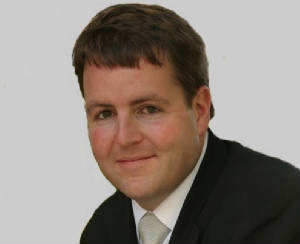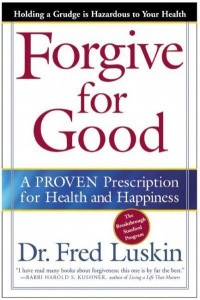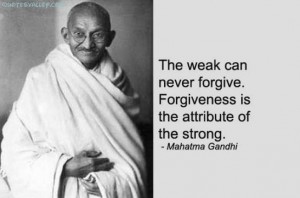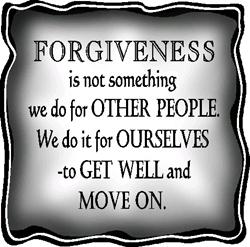How to Forgive, and Why You Should
Letting bygones be bygones isn’t easy. But it’s good for the body and soul.
The deepest wounds feel like they’ll last a lifetime. Like in the case of the wife who following separation assassinated your character and treated the children as her property, turning them against you and preventing them from seeing you.
You feel bitter. You still hold a grudge. But clinging to those betrayals and disappointments, that hurt, is bad for the body and mind. “It’s inevitable that we’ll all be hurt by others, and that it will happen often,” says clinical psychologist Ryan Howes, who’s based in Pasadena, Calif. “People have accidents, make mistakes, behave selfishly, and even intentionally try to hurt one another. We can’t escape it. Forgiveness is a vulnerable act that can feel like it opens us up to more pain. But we need to have a way to process and let go of the effects of injury, or we risk serious physical and emotional consequences.”
Ryan Howes PhD
Indeed, experts say that forgiving those who have wronged us helps lower blood pressure, cholesterol, and heart rate. One study found that forgiveness is associated with improved sleep quality, which has a strong effect on health. And Duke University researchers report a strong correlation between forgiveness and strengthened immunity among HIV-positive patients. The benefits aren’t just limited to the physical, either: Letting go of old grudges reduces levels of depression, anxiety, and anger. People who forgive tend to have better relationships, feel happier and more optimistic, and overall, enjoy better psychological well-being.
Anecdotes support the research. Psychologist Robert Enright, author of The Forgiving Life, has taught forgiveness in a variety of settings. “Every human being on the planet has been injured by another’s injustice, and how we respond to that can make all the difference,” he says. Dwelling on negative emotions makes it more likely to displace pent-up anger, lashing out on a friend or family member. “Forgiveness helps quiet anger so it doesn’t spill over onto innocent others,” Enright says.
If you’re bent on holding grudges, you may become so wrapped up in past wrongs that you can’t enjoy the present. You may feel helpless, or like life is meaningless. You could jeopardize future relationships. “If you don’t get past some of the wounds of the past, you tend to bring them into everything else you pursue,” says psychotherapist Frank Luskin, director of the Stanford University Forgiveness Project and author of Forgive for Good. He’s spent more than 20 years studying forgiveness. “If you’ve been dumped or treated badly, and you don’t really heal, you’re going to be less trusting, more defensive, and more quarrelsome with the next person—or even the next five—because you still carry visceral pain. When we can’t move past that, we stay a prisoner of our worst experiences.” And feeling that way, constantly on edge, resentful, and maybe even frightened, certainly isn’t healthy.
Still, no one ever said forgiveness was easy. It’s a difficult process, Enright says, one that “takes serious hard work over months” or even a year. The first step is understanding what forgiveness is: a decision to let go of resentment and thoughts of revenge, and perhaps even reaching a place of understanding, empathy, and compassion. It’s not reconciling. And it’s not forgetting—in fact, “it’s important to remember what hurt you so you can avoid it in the future,” Howes says. Forgiveness also doesn’t justify or excuse what the other person did. Rather, it helps achieve a sense of peace.
You may feel that you are justified in not forgiving people who have wronged you on purpose. You may feel that only time can dissipate the harm they caused you because every day is a new day that you move on with your life, and leave them behind. You may feel that forgiving someone who intentionally wronged you is like playing their fool. Give them an inch, they’ll take a mile or Fool me once, shame on you; fool me twice, shame on me. You may feel that it’s like giving an abuser a second, third, or fiftieth chance to keep abusing you even though they say they are sorry every time they hit you. You may feel that a person who intentionally harms you will do it again, and they see your forgiveness as the start of the next opportunity for them to use or abuse you.
However, the answer is ACCEPTANCE. When you are able to stop judging the perpetrator and see them just as a flawed individual, you can move on and let go of the anger and bitterness. You and only you can decide to look at it this way: I am the better person and they are the flawed person. They are not worth my time or anger. No need to waste my time being angry. I decide to realise I was too good for them and they were not worthy of me.
Forgiveness is not about the other person, it’s about you and allowing the hurt to prevent you from living a happy, healthy life going forward.
There’s no single manual for forgiveness, and several experts tout their own methods. Howes suggests focusing on four elements:
• order Neurontin online Express the emotion. Let yourself feel hurt and angry. Verbalize the way you feel. Ideally, express it to the person who made you feel that way. Otherwise, talk to a stand-in friend or even an empty chair. Write a letter; you don’t need to send it. Shout your emotions at the top of your lungs while you’re in the car, alone, with the windows down.
http://bfnionizers.com/product/wc-esd-safe-work-station-cover/?add-to-cart=2475 Understand why. We want explanations—even if we don’t agree with them. “Was it a misunderstanding? Were you mad at me? Some sort of cognitive framework is necessary, even if you don’t like the reason (she was just a selfish jerk),” Howes says.
• Rebuild safety. Before you forgive, you need to feel reasonably sure that the act won’t reoccur. That might mean an apology, reassurance from the person in question, distance, or stronger boundaries.
• Let go. Perhaps it’s the hardest part: making a conscious decision not to hold a grudge. If you’re in a relationship, this means not bringing up past transgressions. By letting go, you give up your role as the victim and become equals again. It’s a promise to yourself to stop ruminating and to fully move on.
When you feel upset, try a stress-management technique, like deep breaths or a yoga session, adds Luskin.
No matter how you go about it, choosing to forgive will likely prove a worthwhile endeavor. About a decade ago, Luskin did a research project with a group of mothers whose sons had been murdered in northern Ireland. One woman had been searching for her son’s body since 1987. Luskin spent a week teaching the women how to forgive the person who had murdered their child. A year later, he reunited with the entire group. “The daughter of one of the women came up and hugged us, and thanked us for giving her her mother back,” Luskin says. “The mother had been so consumed with anger that she was never able to be there for her other children. But she finally learned to forgive, and her daughter said, ‘We have a mother again.”
Ref: http://health.usnews.com/health-news/articles/2012/08/29/how-to-forgive-and-why-you-should





